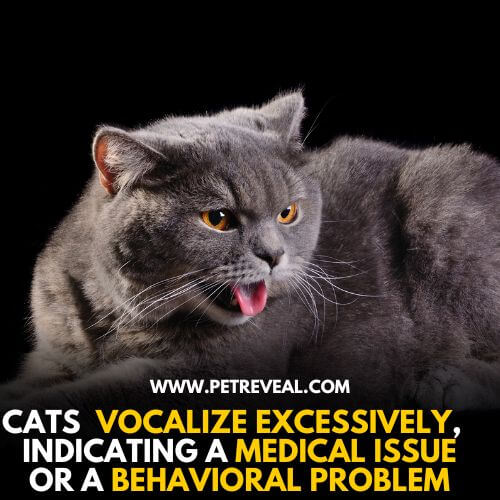Pet owners love observing their furry friends and wonder if some unique behaviors or quirks indicate acute problems. “Can cats be Autistic” is an often-asked question; the short answer is “No.”
Primarily Autism is associated with human beings; according to recent research, some special behavioral patterns in cats come on the autism spectrum. Millions of people have Autism around the world, characterized by challenges in interacting and social communication. There is a repetitive pattern of interests and behaviors as well.
No definitive evidence supports that cats can be diagnosed with Autism like humans. Yet, certain cat behaviors have similarities with human Autism.
Jump to a Specific Section
What is Autism?
Before we dive into whether cats can be autistic, let’s first define what Autism is. Autism, or autism spectrum disorder (ASD), is a developmental disorder that affects a person’s interaction and communication style with others. It can also cause recurring behaviors and a limited range of interests. The exact causes of Autism are still not recognized. A combination of genetic and environmental factors is likely to be the cause.
Cats Can’t Be Autistic, Still Exhibit Autistic Behaviors?
Although, there is no clear evidence to support the point that cats can be diagnosed with Autism. But they exhibit behaviors like those found in autistic human beings.
- Engaging in repetitive behaviors like spinning and pacing
- Striving to modify according to environmental changes
- Feeling anxious and avoiding people
- Excessive vocalizing or making noises
- Being highly sensitive to extremely sensitive
In this article, we have covered these particular behaviors in cats:
1. Repetitive Behaviors
Repetitive behaviors refer to actions that are repeated over and over again, often without any clear purpose or goal. Cats are known to have particular routines, and changes in these routines disturb them. Cats feel secure familiarly and consistently, and any disruption in their routine upsets them.

This leads to repetitive behaviors like excessive grooming or pacing. This can indicate anxiety or stress, especially when their routine is interrupted.
2. An Effort to Adapt to Environmental Changes
Cats can’t be Autistic but they are known for adapting to new surroundings and adjusting their behaviors accordingly. However, some cats may struggle with environmental changes, which can lead to anxiety or stress. This can manifest in various ways, including changes in eating or grooming habits, excessive vocalization, or avoidance behaviors.
If you notice your cat displaying any of these behaviors in response to changes in its environment, there are some things you can do to help them adjust. First, try to maintain a consistent routine as much as possible, such as feeding and playtime schedules. Provide plenty of hiding places and comfortable spaces where your cat can retreat if they feel overwhelmed. Cats can experience difficulty adjusting to changes in their environment, leading to stress and anxiety.
3. Avoiding Social Interaction
As cats are known for their independent nature, it becomes unusual when your cat avoids social interaction. They start preferring to stay away or hide from other people and animals. This behavior may be due to previous negative experiences, dread or unease, or a personality trait.

Being a cat owner, you may feel concerned, but you can observe and evaluate the incidents that could have led to it. Another possibility is that your cats have mental health issues caused due to birth abnormalities, ailments, or accidents.
You can find Down syndrome symptoms as well. It’s always a good idea to consult your veterinarian or a qualified animal behaviorist for advice and guidance.
4. Sensory Sensitivities
Some cats can be susceptible to different things. For example, a cat might fear when hearing loud noises like thunder or fireworks. Or they might avoid certain textures, like sticky surfaces or certain fabric types. Some cats may find strong smells, like certain cleaning products or perfumes, disturbing.

Now, it’s important to note that cats can’t be autistic. However, some of their sensitivities can be similar to those people with Autism might experience.
Talking to a vet or animal behaviorist is always a good idea. They can help you figure out if there’s something else going on or if there are any changes you can make to help your cat feel more comfortable.
5. Excessive Vocalization
Like humans and other animals, cats communicate through various means, including vocalizing or making noises. However, some cats may show an excessive tendency to vocalize, which could indicate a medical issue or a behavioral problem. This behavior may stem from self-stimulation or be a response to stress or anxiety.

Various factors can cause excessive vocalization in cats, including underlying medical conditions or behavioral issues like attention-seeking or anxiety.
How Can I Relax My Cat?
It is always challenging for caring pet owners to find their cat super hyped-up, as this trait suggests autism-like behaviors. Dull eyes, dilated pupils, biting gestures, and your cat may hiss aggressively.
To deter this overstimulation, you should manage time with your cat for indoor playtime and recreation choices. In case your cat feels bored inside and tries to find fun outside, there is a possibility of them getting overwhelmed by it.

Try planning some dedicated time daily for your cat. You can use some chase and light toys to keep them involved for some time. Please only keep them engaged briefly, as this may cause hyperactivity or obsession.
If you find your feline mate angry, provide them space to calm down. When they come to get some solace so, offer them comfort and allow them to initiate playing with you.
Providing your cat with a regular and consistent routine to reduce anxiety resulting from unexpected changes is also a good idea.
By ruling out any medical issues, you and your vet can work together to develop a plan to help your cat feel more comfortable and happy. This might involve changing their environment, providing more mental stimulation, or even trying behavioral therapy.
So, while these behaviors might be similar to those seen in people with Autism, it’s essential to remember that other things could also happen. Working with your vet can help your cat live their best life!
Can Cats Be Good Partners For Autistic Children?
While cats cannot have autism, according to research, cats can help ease autistic children in different manners. They can also help with sensory integration, as petting a cat can be calming and therapeutic for some children with autism. For example, cats reduce their stress level and improve communication skills. Lower cortisol levels are seen when autistic children interact with cats right after waking up. This helps in starting the day with lesser stress.

Meanwhile, it’s important to note that every child with autism is unique, and what works for one child may not work for another. Some children with autism may be sensitive to loud noises or sudden movements, which cats can trigger. Therefore, it’s important to introduce cats to autistic children gradually and carefully and to supervise interactions between them to ensure safety for both the child and the cat.
Conclusion
Cats can have certain unique traits closer to autism but they can’t be autistic. Nonetheless, fear, anxiety, dislike to be held, over vocalization, and can have multiple causes. These causes may range from genetic disorders to some accidents, you should consult a veterinary doctor or behaviorist to help improve your cat’s condition. Owning a cat is a huge responsibility, you should evaluate its conditions before adoption
FAQs
Can cats actually be autistic?
Cats cannot be diagnosed with Autism; it is a human-specific neurodevelopmental disorder.
Can cats exhibit behaviors similar to those seen in people with Autism?
Yes, some cats might exhibit behaviors similar to those seen in people with Autism, such as avoiding social interaction or being sensitive to certain things.
What could be causing my cat’s unusual behavior?
Various factors can trigger a cat’s behavior, including anxiety, stress, pain, or discomfort. Speaking with your vet to rule out any underlying medical issues is essential.
What can I do to help my cat if they exhibit these behaviors?
Depending on the cause of your cat’s behavior, there are several things you can do to help. This might include providing mental stimulation, changing their environment, or even trying behavioral therapy.
Is There A Cure For Autism In Cats?
Since cats cannot be diagnosed with Autism, there is no cure for it in cats. However, working with your vet to identify and address any underlying issues can help improve your cat’s quality of life.
.